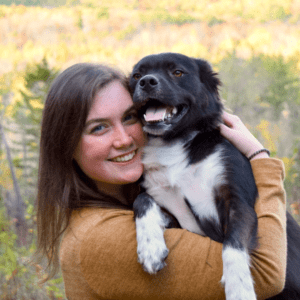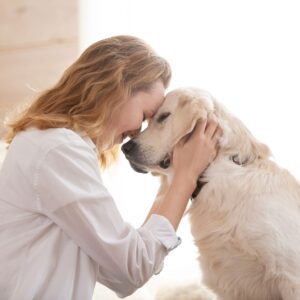Dog ownership has long been associated with a host of physical, emotional, and psychological benefits. For neurodivergent individuals—those with ADHD and/or autism — dogs offer unique companionship and support that can improve their quality of life in profound ways. But while the bond between humans and dogs is powerful, it’s important to understand both the advantages and challenges that neurodivergent people may face when owning a dog. This blog will explore how dogs can help those with ADHD and autism, as well as potential pitfalls and strategies for navigating them.
The Unique Needs of Neurodivergent Individuals
Neurodivergent individuals often experience the world differently. For example:
- ADHD (Attention Deficit Hyperactivity Disorder): Those with ADHD generally struggle with maintaining focus, managing impulsivity, and handling routines. They often experience high levels of emotional intensity, making them sensitive to stress and anxiety.
- Autism Spectrum Disorder (ASD): Autistic individuals may face challenges with sensory overload, communication, and social interactions. Anxiety and stress are common, especially in environments that lack predictability or routine.
Dogs can provide invaluable support in these areas by offering companionship, emotional regulation, and structure. However, dog ownership requires responsibility, which can sometimes be a challenge for neurodivergent people.
Let’s delve into both sides of this coin.
The Benefits of Dog Ownership for Neurodivergent People
- Emotional Regulation and Stress Relief
Dogs have an incredible ability to sense and respond to human emotions. This can be particularly helpful for those with ADHD and autism , who often experience heightened emotional responses. A dog’s presence can provide a calming effect during moments of anxiety, stress, or emotional overwhelm.
- ADHD Support: The tactile sensation of petting a dog, for example, can soothe someone with ADHD, helping to ground them in the present moment. Additionally, dogs often mirror their owner’s emotional state, which can help neurodivergent individuals become more aware of their feelings.
- Autism Support: For autistic individuals, who may find it difficult to interpret or express emotions, dogs offer non-verbal companionship without the complexities of human communication. The loyalty and unconditional love of a dog can provide emotional reassurance, helping to ease social anxieties.
- Providing Structure and Routine
Many neurodivergent individuals benefit from having structure and routine, which dogs naturally bring into a household. A dog needs to be fed, walked, and cared for regularly, which can help create a sense of purpose and order in a neurodivergent person’s life.
- ADHD Support: For individuals with ADHD who struggle with time management or consistency, a dog’s routine can encourage regular habits. Walking the dog, feeding them on time, and attending vet appointments can help neurodivergent individuals establish better patterns in their daily lives.
- Autism Support: Autistic individuals who find comfort in routines can develop a sense of predictability through dog ownership. Dogs thrive on consistent schedules, which aligns well with the need for structure often experienced by those on the autism spectrum.
- Improved Social Interaction
For those with social anxiety or difficulties in communication—common among neurodivergent individuals—dogs act as excellent social facilitators. Walking a dog or spending time in dog-friendly spaces can naturally lead to conversations and social interactions.
- ADHD Support: People with ADHD often have difficulties with social inhibition and can feel isolated in social settings. Dogs can serve as conversation starters, making it easier to meet new people and develop connections.
- Autism Support: Autistic individuals, who may find direct social engagement overwhelming, may feel more comfortable interacting with others when their dog is present. The focus shifts away from them and onto the dog, reducing the pressure of communication.
- Sensory Companionship
Sensory sensitivity is a hallmark of both ADHD and autism. Some neurodivergent people may find the sensory experience of being with a dog, such as petting or simply sitting next to them, extremely grounding.
- ADHD Support: Fidgeting and the need for sensory stimulation are common with ADHD. Engaging with a dog provides a healthy outlet for this, whether through petting, playing, or simply being in their calming presence.
- Autism Support: Dogs can offer comforting sensory input through their soft fur and warm presence, helping to calm someone who is experiencing sensory overload or stress.
The Potential Pitfalls of Dog Ownership for Neurodivergent People
While dogs provide incredible benefits and help those with ADHD and autism, it’s essential to consider the potential challenges of dog ownership for neurodivergent individuals. Without addressing these challenges, the very things that make dog ownership rewarding could become overwhelming.
- Maintaining Consistency and Routine
For someone with ADHD, sticking to a schedule can be difficult, and caring for a dog requires daily consistency. Forgetting to walk or feed a dog can lead to stress and guilt, potentially exacerbating feelings of overwhelm.
Solution: Setting alarms or using apps specifically designed to help manage pet care can be beneficial. Creating a structured daily checklist can also help neurodivergent dog owners stay on track with their responsibilities.
- Sensory Overload
For people with autism or ADHD, certain aspects of dog ownership—such as barking, shedding, or the tactile sensation of fur—can become sensory triggers. The sensory input from dogs might become overwhelming during times of stress or sensory overload.
Solution: If sensory overload is a concern, consider breeds that shed less, bark infrequently, or have a less overwhelming presence. For some, adopting a smaller or hypoallergenic dog can help minimise these challenges.
- Financial Responsibility
Owning a dog comes with financial commitments, including food, vet bills, and supplies. For neurodivergent individuals who may have executive functioning challenges, keeping track of these expenses can be difficult.
Solution: Creating a pet budget and using financial tracking apps can assist in managing the ongoing costs of dog care. It’s also helpful to plan ahead for unexpected expenses, such as emergency vet visits. For more useful information around the hidden costs of dog ownership – view our blog
- Emotional Overwhelm
Although dogs provide emotional support, they also need attention and care, which can become overwhelming for someone already struggling with their mental health.
Solution: It’s important to assess personal capacity before taking on a pet. If it feels like too much, consider fostering a dog first to experience the responsibilities without long-term commitment.
Tips for Neurodivergent Dog Business Owners
For dog business owners who are neurodivergent, these challenges and advantages extend into professional life as well. Managing a dog-related business while experiencing the ups and downs of ADHD or autism can be stressful, but strategies such as delegating tasks, seeking professional support, and setting realistic goals can make a difference. Prioritising self-care and mental health, while also leveraging the positive emotional impact of working with dogs, is crucial.
Conclusion
In conclusion, dogs can help those with ADHD and autism by being a source of incredible emotional support, structure, and social facilitation. By understanding both the benefits and potential pitfalls of dog ownership, neurodivergent individuals can navigate the responsibilities in a way that enriches their lives. With the right strategies, dog ownership can be a life-changing experience, offering comfort, companionship, and a better sense of well-being.
Further reading:
Unlocking the Power of ADHD: Harnessing Neurodivergence to Fuel Your Business Success
Is There a Link Between ADHD and a Connection to Dogs
Read more on managing mental health and dog ownership here.









Lucie Culley
08/10/2024 at 12:27 pmThanks for sharing!
Add a comment